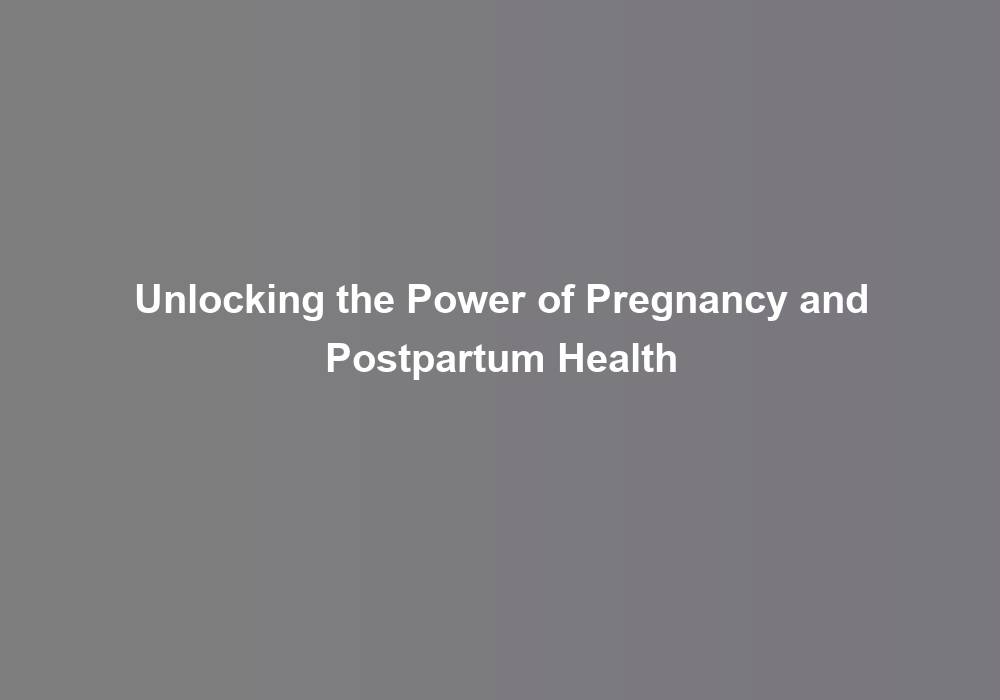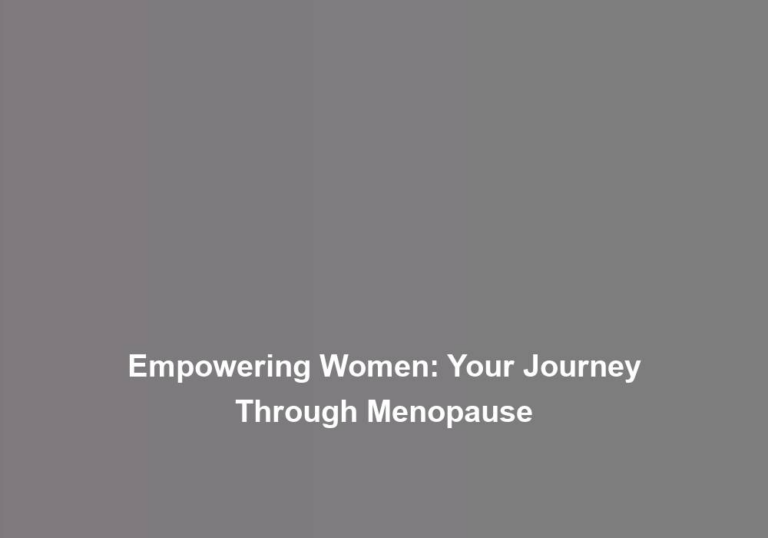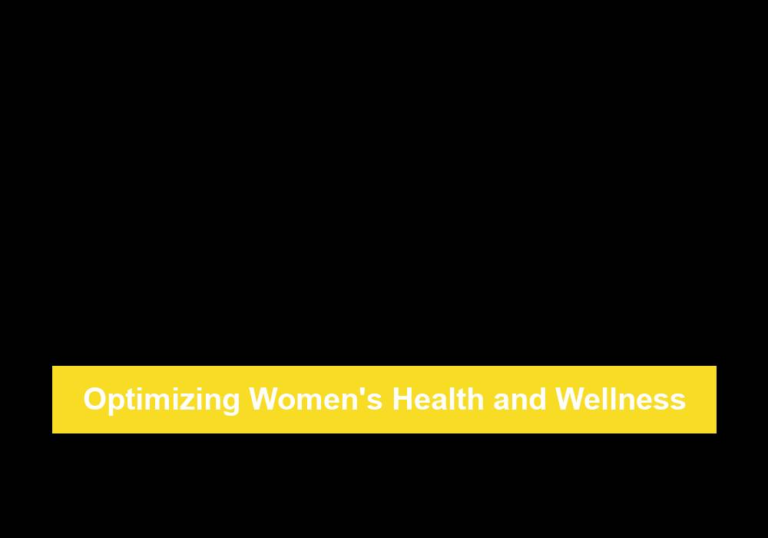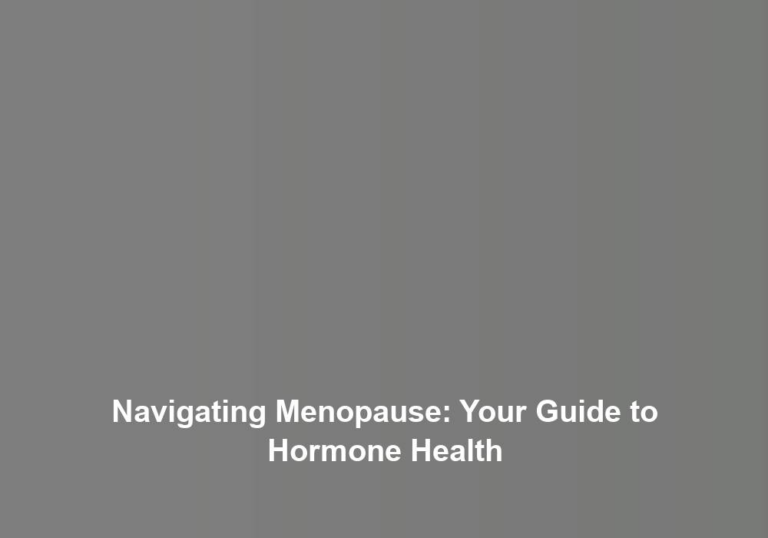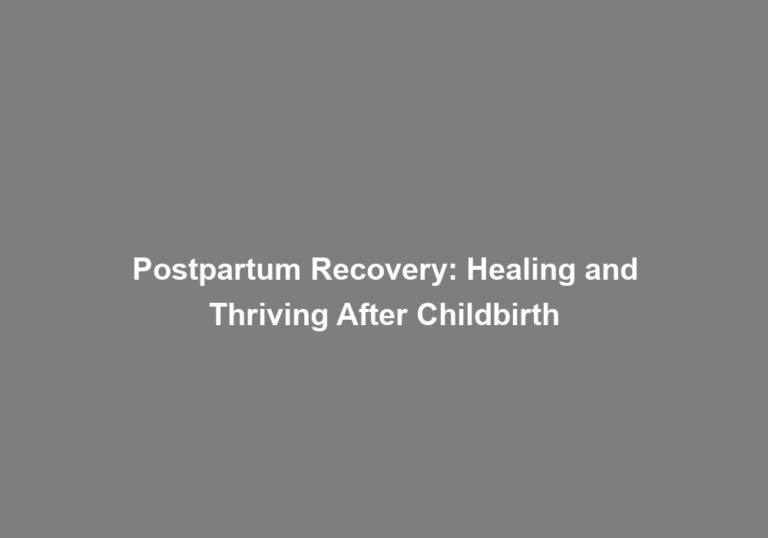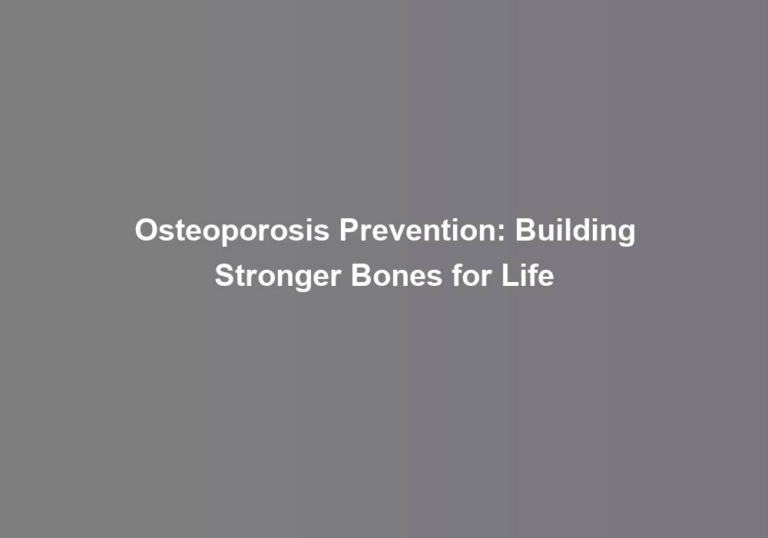Unlocking the Power of Pregnancy and Postpartum Health
You may not realize that the journey of pregnancy and postpartum encompasses a wealth of health considerations that can significantly impact both the mother and the baby. From the importance of prenatal care to the complexities of postpartum recovery, there are numerous factors to consider in order to unlock the full power of this transformative phase in a womanG??s life. Understanding how pregnancy and postpartum health can shape long-term well-being is crucial for both mothers and their families. The ways in which these aspects are managed can have a lasting impact on the health and happiness of everyone involved.
Importance of Prenatal Care
If youG??re expecting a baby, getting regular prenatal care is essential for ensuring both your health and the health of your baby. Prenatal care involves more than just routine check-ups; it encompasses a holistic approach to maternal wellness and prenatal education. These visits provide an opportunity for healthcare professionals to monitor the progress of your pregnancy, address any concerns you may have, and offer guidance on a range of topics, from nutrition and exercise to preparing for childbirth and beyond.
During these appointments, your healthcare provider will assess your overall health, monitor your babyG??s growth and development, and screen for any potential complications. They will also offer valuable advice on how to maintain a healthy lifestyle throughout your pregnancy, including the importance of a balanced diet, regular exercise, and managing stress. Additionally, prenatal care plays a crucial role in preparing you for the birthing process, providing information on what to expect during labor and delivery, as well as postpartum care.
Nutrition and Exercise During Pregnancy
Ensuring proper nutrition and engaging in regular exercise during pregnancy are vital for the health and well-being of both you and your baby. Taking care of your body through good nutrition and appropriate exercise routines can help you navigate the physical and emotional changes that come with pregnancy. Here are some key points to keep in mind:
-
Prenatal Nutrition: Consuming a well-balanced diet rich in essential nutrients such as folic acid, iron, calcium, and protein is crucial for the development of your baby and to support your own health during pregnancy. Including plenty of fruits, vegetables, whole grains, lean proteins, and healthy fats in your diet can help provide the necessary nutrients for both you and your baby.
-
Hydration: Staying adequately hydrated is important for the circulation of nutrients and oxygen to the baby. Aim to drink plenty of water throughout the day, and consider incorporating hydrating foods such as fruits and vegetables into your meals and snacks.
-
Exercise Routines: Engaging in safe and appropriate exercise during pregnancy can help you maintain a healthy weight, reduce discomfort, and prepare your body for labor and delivery. Moderate activities such as walking, swimming, prenatal yoga, and low-impact aerobics can be beneficial. Always consult with your healthcare provider before starting or continuing an exercise routine.
-
Supplements: In some cases, prenatal vitamins or other supplements may be recommended to ensure that you and your baby are getting all the necessary nutrients. Discuss with your healthcare provider to determine which supplements are best for you.
-
Regular Check-ups: Regular prenatal check-ups with your healthcare provider are essential for monitoring your health and the development of your baby. These visits provide an opportunity to discuss your nutrition and exercise habits and address any concerns you may have.
Mental Health Support for Expectant Mothers
Pregnancy can be an exciting and joyful time, but it can also come with its fair share of stress and anxiety. As an expectant mother, itG??s important to prioritize your mental well-being. Antenatal mental health and coping with stress are crucial aspects of your pregnancy journey, and there are various support systems and resources available to help you navigate this challenging but rewarding time.
Antenatal Mental Health
During pregnancy, itG??s important to prioritize mental health support for expectant mothers to ensure a positive experience for both the mother and the baby. The emotional well-being of expectant mothers is crucial for a healthy pregnancy and the overall well-being of the child. Here are some ways to support antenatal mental health:
- Encourage open communication with healthcare providers to address any concerns or anxieties.
- Provide access to resources for stress management techniques such as deep breathing exercises or prenatal yoga.
- Foster a supportive environment at home by involving partners and family members in offering emotional support.
- Offer opportunities for expectant mothers to connect with other pregnant women to share experiences and build a sense of community.
- Educate expectant mothers about the importance of self-care and seeking help if they experience persistent feelings of anxiety or depression.
Coping With Stress
Navigating the challenges of pregnancy and childbirth can be emotionally demanding, and finding effective ways to cope with stress is crucial for the well-being of expectant mothers. Stress management is essential during this transformative time. Incorporating relaxation techniques, such as deep breathing, meditation, or prenatal yoga, can help alleviate the daily pressures. Coping strategies are equally important, and seeking emotional support from loved ones, joining support groups, or speaking with a mental health professional can provide comfort and guidance. Remember, itG??s okay to ask for help and take time for yourself. Prioritizing your mental well-being is vital for a healthy pregnancy and postpartum experience. YouG??re not alone in this journey, and there are resources and coping mechanisms available to support you through this process.
Postpartum Recovery and Self-Care
After giving birth, itG??s important to prioritize your postpartum recovery and self-care to support your physical and emotional well-being. Your body has gone through an incredible journey, and now itG??s time to focus on healing and nurturing yourself. Here are some essential tips to guide you through this crucial phase:
-
Listen to Your Body: Pay attention to your bodyG??s signals. Rest when you need to, and donG??t hesitate to ask for help. Your recovery is unique, so be gentle with yourself.
-
Nourish Your Body: Eating nutrient-rich foods and staying hydrated can aid in your recovery. Include plenty of fruits, vegetables, lean proteins, and whole grains in your diet.
-
Engage in Gentle Movement: While vigorous exercise may need to wait, gentle movements like walking or postpartum yoga can help improve circulation, boost your mood, and aid in recovery.
-
Prioritize Emotional Well-being: ItG??s okay to feel a range of emotions after giving birth. Seek support from your loved ones, and consider speaking with a counselor or joining a new momG??s support group.
-
Self-Care Rituals: Take time for self-care activities that bring you joy and relaxation. Whether itG??s a warm bath, meditation, or simply enjoying a quiet moment, nurturing your mental well-being is vital.
Breastfeeding Benefits and Challenges
Transitioning into breastfeeding can come with both rewarding benefits and unique challenges for new mothers. The bond formed during breastfeeding can be incredibly fulfilling, and the health benefits for both you and your baby are numerous. Breast milk provides essential nutrients and antibodies, boosting your babyG??s immune system and reducing the risk of certain illnesses. It also supports your postpartum recovery by helping your uterus return to its pre-pregnancy size more quickly.
However, breastfeeding may also present challenges. Many new mothers experience difficulties with latching, engorgement, or low milk supply. Seeking breastfeeding support from lactation consultants, support groups, or online communities can help you navigate these challenges. ItG??s important to remember that every breastfeeding journey is unique, and itG??s okay to ask for help when needed.
Additionally, finding time for self-care and rest while breastfeeding can be demanding. You may feel overwhelmed, but itG??s crucial to prioritize your well-being. Establishing a support system and communicating your needs to your partner, family, or friends can make a significant difference. Remember, taking care of yourself is an essential part of taking care of your baby.
Understanding the benefits and challenges of breastfeeding can empower you to make informed decisions and seek the support you need. Embracing both the rewards and the difficulties with an open mind and seeking assistance when necessary can help you navigate this precious and transformative experience.
Long-Term Health Considerations
As you consider the long-term health considerations after giving birth, itG??s important to be aware of the impact that breastfeeding can have on your overall well-being and future health. Breastfeeding offers numerous health benefits for both you and your baby, but itG??s essential to also focus on your long-term health beyond the immediate postpartum period. Here are some important factors to consider:
-
Maternal Mortality: While maternal mortality rates have decreased over the years, itG??s crucial to stay informed about potential risks that may affect your long-term health. Regular check-ups and open communication with your healthcare provider can help monitor and address any potential concerns.
-
Chronic Conditions: Pregnancy and childbirth can sometimes increase the risk of developing certain chronic conditions such as diabetes, hypertension, or postpartum depression. ItG??s important to prioritize your health and seek support if you experience any symptoms that persist beyond the postpartum period.
-
Nutrition and Exercise: Maintaining a healthy diet and engaging in regular physical activity can have a significant impact on your long-term health. Proper nutrition and exercise not only support your overall well-being but can also help reduce the risk of developing chronic conditions.
-
Mental Health: Postpartum mental health is a crucial aspect of long-term well-being. ItG??s important to seek support if you experience symptoms of anxiety, depression, or any other mental health concerns.
-
Long-Term Care: Establishing a long-term care plan with your healthcare provider can help address any potential health issues and ensure that you receive the necessary support for your ongoing well-being.
Conclusion
YouG??ve just scratched the surface of the incredible power of pregnancy and postpartum health. As you continue your journey, remember that taking care of yourself is not selfish, but essential for the well-being of you and your baby. Stay informed, stay active, and reach out for support when you need it. Your health matters, and by unlocking its potential, youG??re setting the stage for a lifetime of well-being for you and your family.

